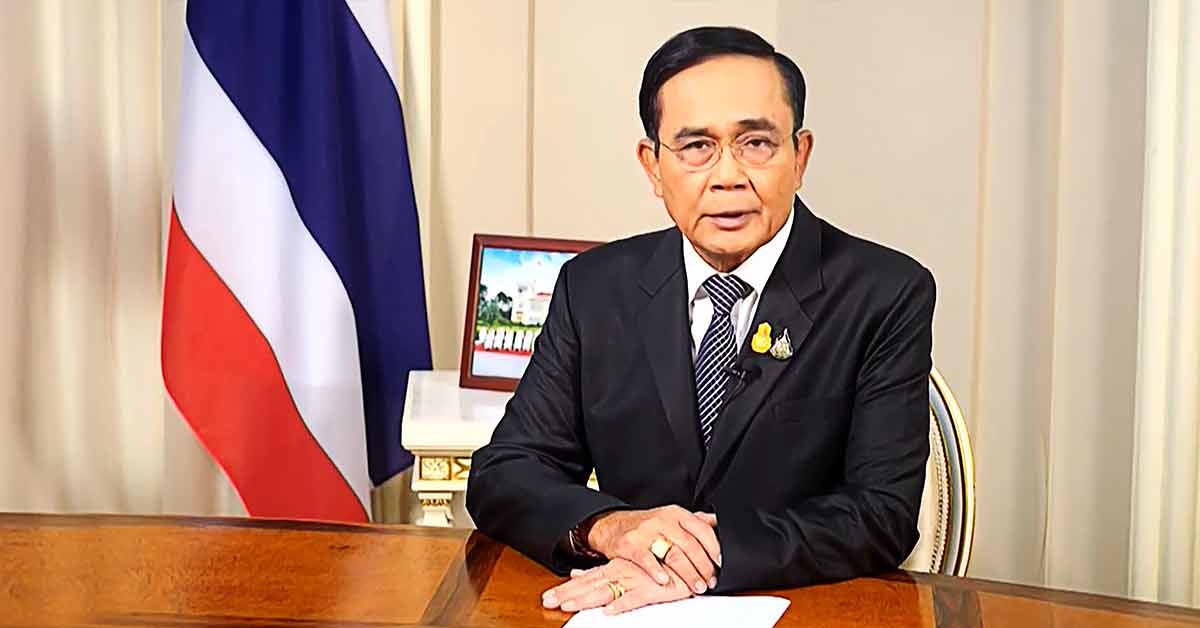Thailand's premier on Thursday revoked an emergency decree that had been intended to quell pro-democracy rallies despite it failing to stamp out daily protests demanding he resign and for reforms of the unassailable monarchy.
The student-led pro-democracy movement has been gaining momentum since mid-July, with mostly young demonstrators calling for Premier Prayut Chan-o-cha's removal and a rewrite of a 2017 military-scripted constitution.
Some protest leaders have also issued controversial demands to reform the ultra-powerful and wealthy monarchy, whose influence permeates every aspect of Thai society.
The "severe" emergency measures were imposed last week after anti-government protesters flashed a three-finger salute to a royal motorcade - an unprecedented challenge to the monarchy.
But the ban on gatherings of more than four people failed to discourage tens of thousands of demonstrators who amassed daily around major Bangkok intersections to call for Prayut to step down.
The former military chief - who masterminded the 2014 coup and has held onto power since - had indicated late Wednesday he was preparing to lift the state of severe emergency as part of a move to defuse tensions.
Prayut said in a televised address on Wednesday that the country must "step back from the edge of the slippery slope that can easily slide to chaos".
He had earlier also called for an extraordinary session of parliament to discuss the crisis. That session will be held on Monday.
However, a government statement announcing the withdrawal of the emergency measures on Thursday said the decision was because the political situation had improved.
"The severe state of emergency has decreased and ended into a situation in which government officials and state agencies can enforce the regular laws," it said.
"All conditions set under the severe state of emergency have been stopped."
The measures had also given the police carte-blanche to arrest protesters and seize electronic materials believed to threaten national security.
Prayut's apparent concession came after authorities deployed water cannon on Friday, firing chemical-laced water at unarmed protesters in Bangkok's central shopping district.
Police justified it as following "international standards", but the tactics drew criticisms across Thai society and have not been repeated.
Scores of activists have also been arrested over the past week, many of them prominent faces of the movement.
'Just A Game'
Revoking the emergency decree was "just a game" for the authorities to buy time and reduce tensions, according to political analyst Titipol Phakdeewanich.
"This action has no significant meaning," said Titipol, adding that the severe measures should not have been imposed to begin with.
"People have the right to protest," he said, adding that this was enshrined in the Thai constitution.
Rally organisers had been able to defy the ban by announcing different venues an hour before gathering daily - outsmarting authorities who tried shutting down public transport lines to discourage protesters.
Wednesday's demonstration at Bangkok's Victory Monument drew thousands who marched to Government House.
One leader Passalawaree "Mind" Thanakitwibulpol - who had handed authorities a "resignation letter" for the premier - was later arrested and charged with breaking emergency measures before being released on bail Thursday morning.
"They chose to arrest me at night after the protest, and in a small dark soi (alley)," she told reporters as she left the court. "This is inappropriate."
The government had also ordered the shutdown of Voice TV this week, a local media outlet partly owned by exiled former premier Thaksin Shinawatra, over its coverage of the rallies.
But Bangkok's Criminal Court revoked the ban on Wednesday, saying: "the people's freedom of communication must be protected".
Thailand has seen more than a dozen coups since the end of royal absolutism in 1932, the latest in 2014.
Its arch-royalist army, which positions itself as a protector of the monarchy, claims that such interventions are necessary to protect the king. - AFP
